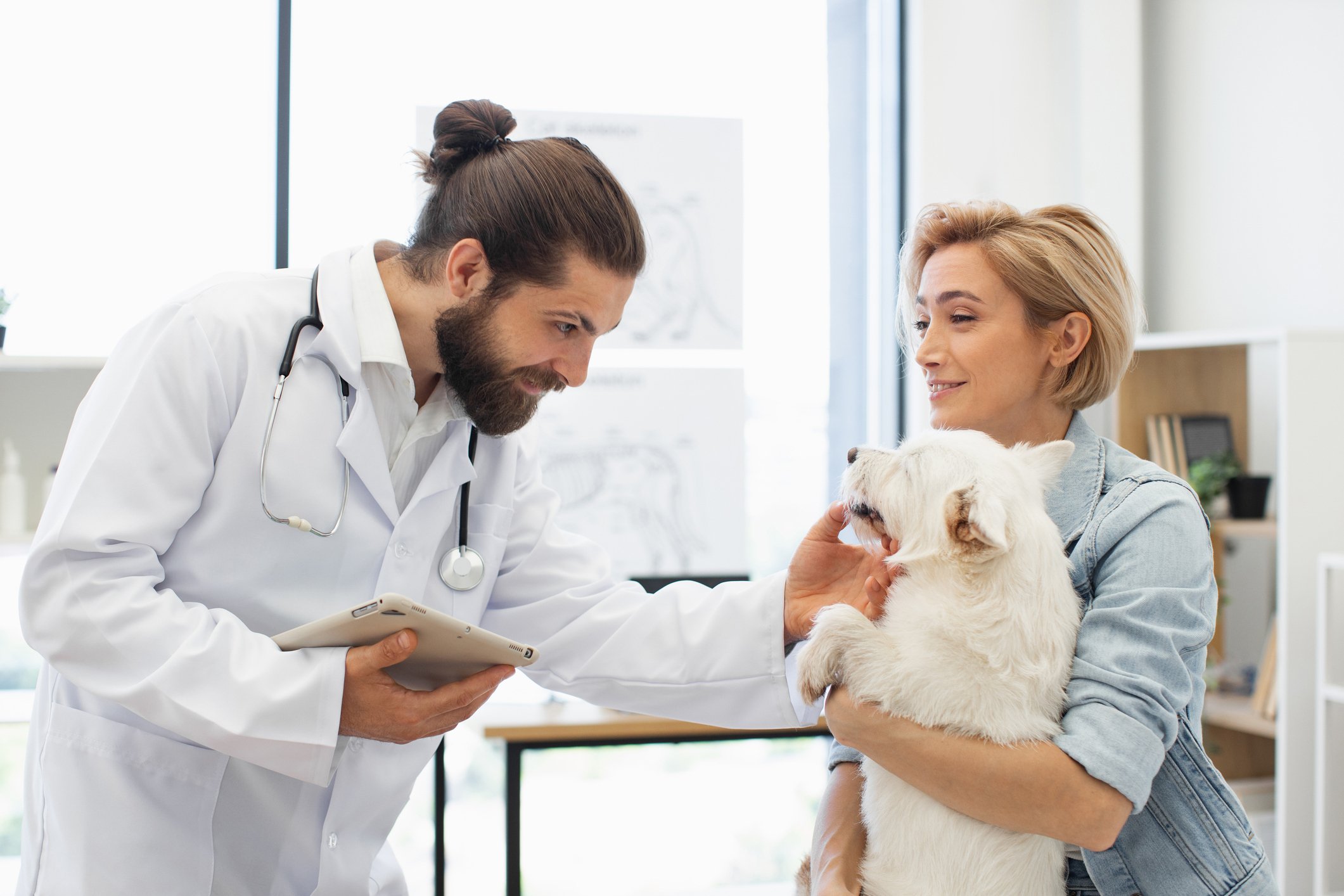Cybersecurity may seem like a concern reserved for banks, tech companies, or other large corporations. But veterinary practices, no matter their size or specialty, are also at risk for cyberattacks. As cloud-based software, digital imaging, and electronic medical records become the standard of care, so does the need to understand – and actively protect – your patient and practice data.
So, how do you know if your clinic and software partners are doing enough? We talked to veterinary practice consultant Nancy Dewitz about why veterinary practices are targets, what the risks look like, and how international standards can help you choose partners that put data security first.
Why veterinary practices are prime ransomware targets
Veterinary hospitals are uniquely vulnerable to cybercrime. While credit card numbers and other personal information aren’t often stored in practice management software, cybercriminals know something crucial: veterinarians cannot operate without access to their data.
“The scammers know that there's nothing of value to them in clinic software,” said Dewitz. “But what scammers also understand is that veterinarians are willing to pay to get their data back because they can’t operate without it.”
Ransomware – the most common threat – locks or encrypts your files until a ransom is paid. Attackers aren’t after your data itself; they’re after your ability to operate. Even if you pay, there’s no guarantee of recovery.
Studies show that nearly half of ransomware attacks reported to insurers target small businesses like veterinary practices. Average ransom demands range from $5,000 to more than $100,000, often accompanied by additional losses from downtime and recovery.
Beyond your PIMS: Vulnerabilities across the clinic
Cybersecurity doesn’t stop at your practice management system. Every digital system in your hospital can create vulnerabilities, including:
- Imaging systems (dental X-ray, ultrasound, CT, MRI)
- Locally stored documents and spreadsheets
- Accounting or payroll software
- Clinic email accounts and shared drives
- Personal devices staff use for work
- Wi-Fi networks and connected devices like security cameras or smart thermostats
“I always tell practices they’re only as good as their last backup,” said Dewitz, recounting a clinic that hadn’t had backups of their PIMS or X-ray data in over six months. “The doctor had no idea backups weren’t happening automatically, putting all data at risk.”
Best practices for backups include:
- Daily automated backups for all systems
- Monthly restoration tests to ensure files can be recovered
- Redundant copies (both cloud-based and local storage)
- Clear documentation of what is backed up and for how long
🚨 Even if your PIMS is secure, other files and programs can leave you exposed. For instance, lab results stored in a shared spreadsheet or emailed as attachments bypass the protections your cloud PIMS provides.
What happens when a cyberattack hits
A cyberattack can be devastating. Consider the 2021 ransomware attack on Ireland’s public health services, which crippled hospital systems for months. A single veterinary practice can experience serious consequences from even brief downtime, including:
Operational impacts:
- Lost or damaged medical records
- Cancelled appointments or surgeries, putting patient health at risk
- Halted retail and food sales
Financial and reputational impacts:
- Direct revenue loss and recovery costs
- Damage to client trust and long-term relationships
- Potential legal or regulatory issues (e.g., controlled substance logs, compliance violations)
Other risks may include equipment failure, natural disasters, or internal sabotage that can take systems offline.
Any one of these risks underscores the importance of choosing a practice management system that takes data security seriously – and has the credentials to prove it.
ISO standards: The gold benchmark for data security
Reducing risk starts with choosing partners who meet the highest data security standards. The International Organization for Standardization (ISO) develops global standards to ensure quality, safety, and efficiency across industries. ISO/IEC 27001 specifically addresses information security management, including:
- Secure storage and encryption of data
- Regular risk assessments and internal audits
- Incident response and disaster recovery protocols
- Clear assignment of responsibility for data security
ISO certification is awarded by independent auditors. Clinics should verify a vendor’s certification by requesting documentation or checking accreditation registries. While veterinary practices don’t hold ISO certifications themselves, selecting ISO 27001-certified vendors (like Provet) signals a serious commitment to safeguarding data.
Choosing partners who meet the highest standards
Technology is only as strong as the people and processes behind it. Dewitz emphasizes the importance of vendors and IT providers who understand the stakes in a medical environment.
“Joe down the street is probably fine for your home computer,” she said. “But not for your veterinary clinic. A typical IT agency may not understand the gravity of the situation.”
When evaluating potential partners, ask questions such as:
- Are you ISO 27001 certified?
- Do you comply with GDPR regulations?
- Do you provide off-site, redundant, and automatic backups?
- What is your recovery protocol if a breach occurs?
💡 Consider assigning a staff member as your clinic’s “data security lead” to ensure consistent follow-up on these questions and accountability for ongoing security.
Training your staff on data security
Staff training is equally critical. Phishing emails, fake IT calls, and malware are increasingly sophisticated. Common scams in veterinary practices include fake lab result attachments, fraudulent supplier invoicecs, phony HR or payroll notifications.
Tips for staff training:
- Hold regular team discussions and refresher courses
- Conduct occasional “test” phishing exercises
- Maintain clear protocols on where data should and should not be stored
How to keep your practice protected
To strengthen your clinic’s defenses:
☑️ Recognize that veterinary practices are high-value ransomware targets
☑️ Choose ISO/IEC 27001-certified software vendors
☑️ Apply data safeguards across all systems, not just your PIMS
☑️ Train staff regularly to prevent errors and respond to threats
☑️ Partner with IT providers who understand medical data security
☑️ Require multi-factor authentication for all logins
☑️ Consider cyber insurance to mitigate potential financial losses
☑️ Schedule regular penetration testing or security audits
Together, these measures create resilience – ensuring that even if an attack occurs, your practice is prepared to withstand it.
Provet has security built into every layer
Provet takes data security and management seriously. Our parent company, Nordhealth, holds ISO/IEC 27001 certification and complies with GDPR standards everywhere our products are sold.
And now as AI tools become widely available, there are newer risks to data security. Explore our collection of resources on safe and effective uses of AI in the veterinary practice, at every step of the patient journey.


